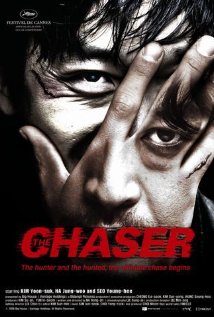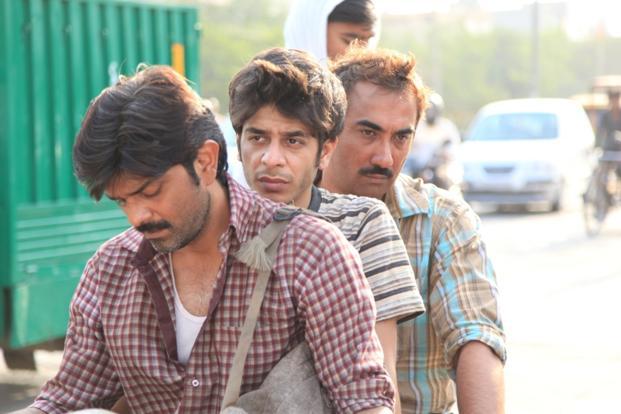Bombay Velvet
Bombay Velvet : Movie Review
Rating : 2 and 1/2 stars out of 5 (barely above average)
Year : 2015
Language : Hindi (English subtitles available)
Director : Anurag Kashyap
Producer : Fox Star Studios
Only rarely does a film come along that merits discussion much more for what a landmark movie it could have been, and much less for what a deflated disappointment it actually is. Before Bombay Velvet's release in early 2015, Anurag Kashyap could lay strong claim for being the country's best director - we had just watched him in tightly coiled, ferocious form in the spellbindingly dark thriller "Ugly" and it was not long ago that the multifarious dazzle of "Gangs of Wasseypur Part I" showcased a brutal sprawling drama like no other. Moreover, in this much anticipated mainstream release (Kashyap has never even come close to spending Rs.120 crore that got lavished on this period saga) the elite storyteller had the backing of Hollywood subsidiary and distributor Fox Star Studios. Add to that, the splendid chance to make good business pals with Karan Johar who hails from one of the biggest production houses in India ( this film has Johar in his first major starring role). All this explains why it is most regrettable that B.V crashed at the box office, not to mention on the critical calibator too, failing to recover even one-third of its expensive cost and netting a loss of approximately 13 million dollars at the time of writing.
Set in the Bombay of the 1960s in a zeitgeist in which the city had not yet become the metropolitan behemoth that it is today, the pic derives inspiration from James Cagney starrers like 'Roaring Twenties' and other classics like 'Scarface' in which a small-time crook guns to become a bigshot. As usual, Kashyap is part of the writing team, but here he fails to steer the imaginative raft over soaring waves onto the golden shore - in fact his script's vessel never really takes off. The writing team includes Gyan Prakash of Princeton University - Prakash opined that the audience could not appreciate the layered "connect-the-dots" stylized technique of the helmer. That is why academics don't make the best scriptwriters. Film audiences throughout the world are admittedly not bright in general, but neither are they rank fools. This story is not especially layered, nor is it admirably stylized enough to get preserved in venerable archives. Moreover it just doesn't have enough twists, thrills or creative leaps to hook an audience despite Kashyap saying that it is his most creatively challeging movie ever, and inspite of hero Ranbir Kapoor's box office appeal.
Pic starts with its trippily named hero Johnny Balraj (Ranbir) arriving in an adolescent Bombay as a child aboard a steamer. His doomed female guardian accompanies him to this city from the partitioned apocalypse of Pakistan because "people were getting cut up" in the train to Delhi (the script issues a fair amount of such-like illuminating gobbets). However, Johnny does not get a good Godfather in Maximum City and ends up with minimum morals and escalating ambition to climb higher for money and power. Growing up to be a criminal colt, he accidentally meets Kaizad Khambatta (Karan Johar) a powerful wheeler-dealer who's surreptitiously gay (the most he does in this regard is to rake a fingernail over the fleecy manhood of Johnny's forearm). Kaizad inducts Johnny into his gang and then gets busy trying to grab a lion's share of valuable real-estate which the city's bastard fathers are planning to appropriate while leaving the masses poorer. Little Johnny wants in on the action too , but as he's repeatedly denied his share , he goes ballistic with Tommy Guns and whatnot , his biggest mistake being not realizing that the best and most honourable way to hell is the path taken by Don Vito Corleone, not Scarface.
Anurag K. has the admirable and very rare trait of incorporating aesthetic wallop, social concern and history in adroit celluloid blends. Here he includes a sequence of how a group of people escape the gun-wielding Portuguese barbarians who colonized Goa till the 1960s (Portuguese occupation of parts of western India is barely covered in Indian cinema) and a graphic swims into view of how Bombay's land reclaimed from sea will make the city's fractured landmasses unite into a cohesive lucre-field. But through all this sifting past fact and fiction, the story remains mostly flat - there is no great moment wherein the hero breaks spectacular surface for the first time, the villain does not send a chill down your spine, the songs don't seduce your aural cockles, and the machinations of the story's nefarious men don't hit the curves that make a ride memorable.
The fantastic actor Kay Kay Menon plays a lackluster inspector who goes on to a raid a hotel to capture Johnny.The sequence which could have been thrillingly dangerous becames a laughably tame one. Johnny slides down and runs away while the frame looks up and lingers on a shot showing the tie-sporting hat-wearing inspector against the glowing sign of "Shalimar Hotel". The director possibly got his private kicks planning the scene as an Indian homage of a Hollywood one in which a white cop stands against the glowing sign of "Metropole Hotel" but how much nicer would that finishing shot have been had the panting frustrated inspector stood there after an edge-of-the-seat chase.
Anushka Sharma, as Johnny's love interest and a spy sent to steal a vital secret, is more winsome than bewitching but I don't mean that as a criticism. I found nothing to criticize in her endearing finely honed act , which peaks in a moment when she innocently and softly queries "What?" when her man stops just short of telling her what he actually wants to do with her. Kashyap has not had much success turning people who are not innate or trained actors into thespian successes. He himself was a wooden dud in his cameo in "Luck by Chance" , in 'Gangs of Wasseypur' he harvested only middling effect from Tigmanshu Dhulia and here he doesn't push Karan Johar enough to extract a truly wicked act. There's one sequence where Kaizad withdraws to snigger and chortle in aborted fits ,but that pansy paroxysm is hardly great acting. Johar whose sexual orientation in real life has still not been declared considered his single status and subtly effeminate manner after all these years in the limelight, needs to be congratulated for agreeing to embody a persona who keeps his gay preference barely under wraps. But we don't witness the variety or verve of physiognomy that would have left us asking him to act again. Siddhartha Basu as the corrupt mayor is even more mediocre, landing another stunted act after "Madras Cafe" - what really do directors see in this man who was a significantly superior real-life TV quizmaster?
Kashyap has superbly employed Sneha Khanwalkar and Amit Trivedi as composers to jazz up his films in the past, but here he fails to inspire Trivedi in recreating that chutzpah. I can't recollect any of the songs now and the background music serves as a lesson of how not to do it. When Johnny kills for the first time, the score should have been ominous, instead we get some vaguely dramatic notes. When he rips loose with firing from his Tommy Gun, the roof should have been brought down with concordant frisson-igniting mayhem from the soundtrack - what we actually hear is a low-volume beating of drums that does little to enhance the underwhelming action.
Recruiting three time Oscar winner Thelma Schoonmaker (now seventy-five years old) as the co-editor is certainly commendable, but you're more likely to ask who the editor is when it comes to the work of the same director's frequent choice Aarti Bajaj whose absence is felt here. And big-time movie-stars like Ranbir Kapoor are less likely to ask otherwise visionary directors like Anurag Kashyap to direct their movies after duds like this one. Ranbir is excellent in consistently portaying a rather charmless , increasingly amoral and brittle young man who wants power but lacks the smarts to insidiously acquire it - I felt sorry for Ranbir that his continued charisma was compromized by an anemic vehicle. If Kashyap purposely planned a tame narrative trying to mirror the milder cinema of the 1920s and '30s, then I congratulate him for his gumption while gravely positing much of the folks in India and around the world, including me, feel that the movie has the air of whipped dog trying to get spunky again but never quite getting there. Alternatively, it's entirely possible that mutiple commercial concerns, never before experienced by him, weighed down the tiger-like storyteller that A.K is . I hope he pays much closer attention to ensuring a juicy script when he has so much on his plate the next time.
UPN
UPNWORLD welcomes your comments.










0 COMMENTS
WRITE COMMENT